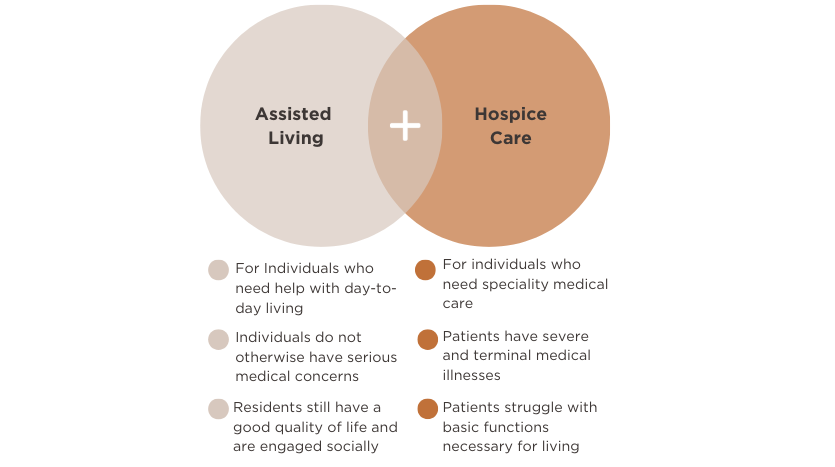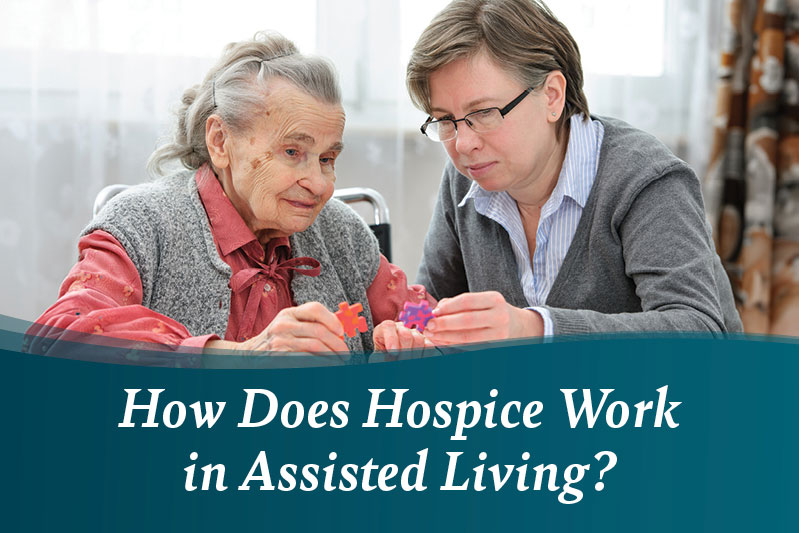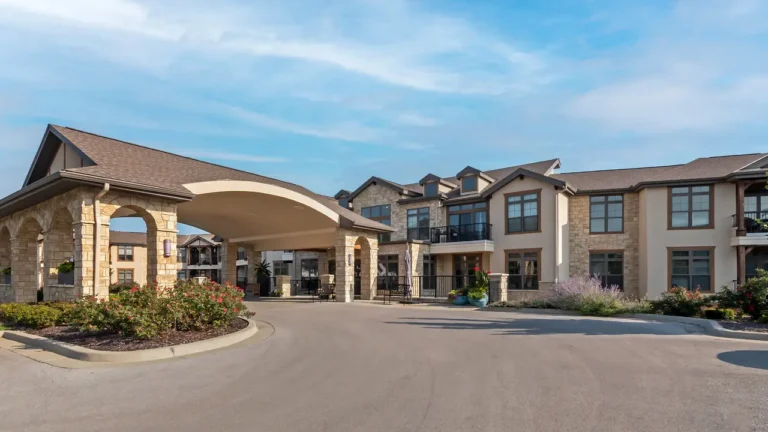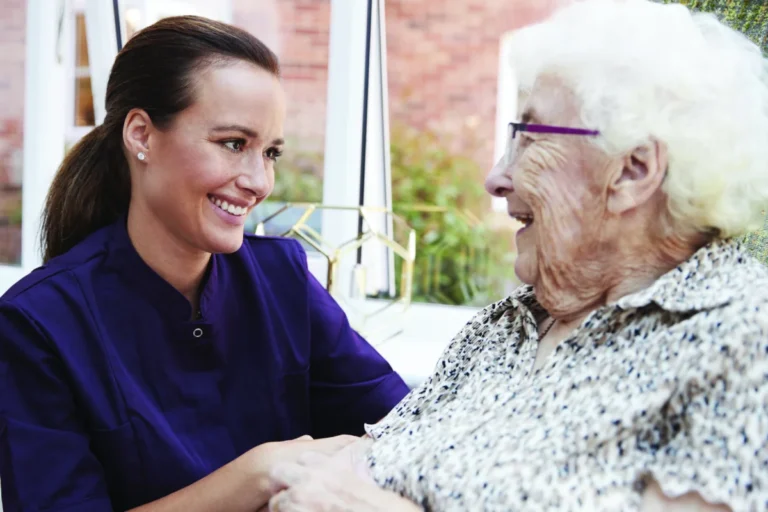When a loved one’s health declines, families often face difficult choices. At Tutera, we believe no one should go through this journey without clarity and support. That’s why we make hospice care in assisted living communities easily available – so residents can remain in familiar surroundings with compassionate caregivers they already know. Here is how hospice works in assisted living.
Hospice vs. Assisted Living: Understanding the Difference
Assisted living helps older adults who are mostly independent but need some support with daily activities such as:
- Taking medications
- Brushing teeth and hair
- Getting to and from the bathroom
- Putting on clothing
- Getting in and out of the shower
- Cutting up and eating food
Hospice care provides specialized palliative care to those with a life expectancy of six months or fewer. The focus is not on curing illness but on relieving pain, managing symptoms and providing emotional and spiritual support to both residents and families.

Common conditions that may lead to hospice include:
- Advanced dementia
- Cancer
- Heart and lung disease
- Overall decline from multiple chronic conditions
How Does Hospice Work in Assisted Living Communities?
Most Tutera assisted living residents who transition to hospice remain in their own apartments. This allows them to:
- Stay in a comfortable, familiar environment
- Continue receiving daily support from our community team
- Benefit from added visits by hospice nurses, social workers, chaplains and counselors
Our staff and the hospice team coordinate care to manage medications, control pain and guide families every step of the way.
Palliative Care: The Heart of Hospice
At its core, hospice is palliative medicine. That means the focus is on comfort, dignity and quality of life rather than aggressive treatment. Whether your loved one lives in assisted living or at home, hospice care provides:
- Pain and symptom management
- Emotional and spiritual support
- Resources for families, including grief counseling and caregiver support
State Variations
Most states allow assisted living communities to provide hospice services. The few exceptions – Montana, Mississippi, Idaho and North Dakota – require residents to move to a licensed facility that allows hospice. If this is the case, our care coordination team helps families find the right option.
Coverage and Costs
Many family members ask us if hospice pays for assisted living, but it does not – it only covers the cost of managing their loved one’s pain and palliative care. Assisted living costs remain the responsibility of the resident/family.
Medicare, Medicaid or private insurance usually covers hospice care. Our staff and hospice partners help families understand their benefits and available support.
Additional Resources
There are many factors families have to consider when starting hospice care in assisted living. Planning services, implementing wills and preparing to notify the proper government entities are just some things families can struggle with when preparing for the passing of a loved one.
Our Tutera Care Coordinators are available to help you understand the process you need to follow and provide additional resources so you can focus primarily on your loved one.
Commonly Asked Questions
There are plenty of questions residents and their families have about how hospice works in assisted living. Here are some of the most common questions our team receives from residents and their families.
If you have a question that is not addressed here, we encourage you to reach out to our team at phone or by email. They will direct your question to the right resources so you can have the information you need to make the best decision for your loved one’s health and care.
How do I know if my loved one needs hospice?
Most of the time, your family member’s doctor will refer you to hospice, but you can also refer your loved one to hospice yourself. Hospice will visit your loved one to assess their health and determine eligibility, and if they are determined to need palliative care, the hospice team works with you and your loved one to develop a personalized care plan.
Who is on a hospice team?
The team often includes doctors, nurses, social workers, chaplains and volunteers. Our Tutera team works closely with all hospice team members, ensuring a seamless coordination of hospice care in assisted living.
Does hospice include 24/7 care?
Full-time care outside a hospice facility is very rare. Hospice provides a lot of support, but family, friends and the Tutera team provide most of the day-to-day care. However, a hospice nurse is typically always available by phone 24/7.
Will the Tutera team tell me when my loved one needs hospice care?
We focus on working as a team with a resident’s family and make recommendations based on our experience, professional expertise and the daily changes we see in a resident’s health and behavior.
Can the Tutera staff order hospice for my loved one?
While our staff can make a hospice referral, we prefer to inform the resident’s family about any changes in their health and have them or their doctor make the referral. However, our highest priority is the care and comfort of our residents, and we will make the necessary referrals if we determine they need immediate hospice care.
The Tutera Difference
We provide most of our hospice care to residents already living in our assisted living communities. This continuity means families don’t have to uproot their loved ones during such a sensitive time. All of our communities, such as The Laurel at Noterre Senior Living and Maryville Chateau Senior Living, share a mission to provide peace of mind, compassionate care, and a sense of home until the very end.
If you’d like to learn more about hospice care in assisted living at Tutera, we invite you to contact us or schedule a tour.







